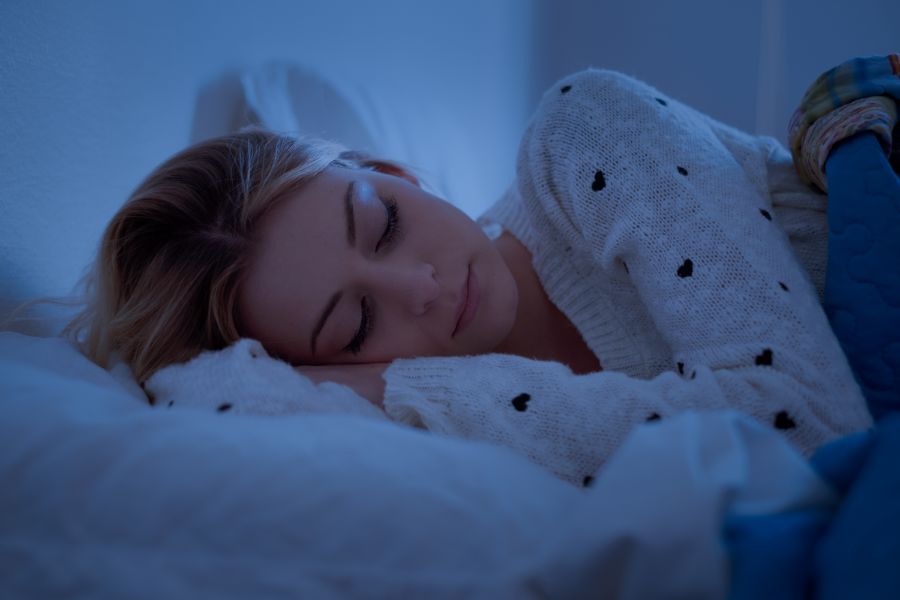We have all been there- walking up in the morning feeling rejuvenated and ready to tackle the day, or feeling groggy and moody after experiencing certain dreams.
One can even argue that the dreams we have at night determine what type of sleep we might enjoy: Good dreams – good sleep and bad dreams – poor sleep.
But could this phenomenon be true, really?
In order to find the answers you and I need, we must deep in our feet into the science of sleep and dreaming, drawing our information from experts in the field and published studies.
Does Dreaming Mean Good Sleep?

Most times, you can tell whether you had a good sleep simply by keeping track of your energy levels when you get up. If you enjoyed a peaceful and vibrant sleep, expect to feel refreshed and energized upon waking up before your daily dose of coffee.
And here’s why: Sleep and dreams boil down to an individual–they’re ultimately personal.
If you have a good, happy, or intriguing dream, you’re more likely to describe your night’s sleep as good. But someone who has experienced dreams with vivid yet disturbing imagery might not share your reaction. Here’s where you’ll hear an individual saying–“I didn’t sleep well last night”.
You might be wondering, what if I don’t remember my dreams? Does it mean I usually have a poor night’s sleep?
No! It just means your conscious mind is yet to process your nocturnal visions.
How Do Dreams Affect Sleep Quality?
If you don’t mind, let us take you back to where we said dreams are a normal part of a healthy sleep cycle. Experts believe those dream you experience support your health and well-being, like memory consolidation and improving moods.
But even before we get to these potential benefits of dreaming, let’s familiarize ourselves with non-rapid eye movement (non-REM) and rapid eye movement (REM) sleep cycles.
When sleeping, your body goes through these cycles, each involving variations of brain activity, muscle tone, eye movements, etc.
You spend an average of around 2 hours in dreamland every night. And even though dreams occur in both stages of sleep, most happen in the REM stage of sleep.
Deirdre Berret, Ph.D., a Harvard Medical School Psychology Professor and president of the Association for the Study of Dreams says your body enters the REM stage for around 90 minutes after your sleep.
You can stay in this stage for about 5 minutes, but expect more vivid imagery in your dreams in this cycle because of increased brain activity.
Nevertheless, the dreams you experience in both stages have some significant perks, as we mentioned, including the likes of:
Building and Improving Memory
Scientists have researched the benefits of sleep for over a century, and one benefit that stands out is memory retention. When sleeping, the dreams you experience help to strengthen your memory, allowing you to retain new knowledge.
A study that involved 99 participants playing a virtual reality maze published in Current Biology in 2010 showed that the group that took a nap after playing solved the maze much better than the group that didn’t. Even more fascinating people who had dreams about the maze after sleeping retained more information about the game.
Processing Emotions
During the REM sleep cycle, your brain enters the emotional disinhibition state, which is where the dorsolateral prefrontal cortex of the region of the brain switches off. Since this section of the brain handles emotional responses, when it shuts down, it allows the unconscious free flow of emotions within your vision.
Although the images in your dreams might be fictitious, the feelings you might experience are quite real, and these may help you heal those emotions. Your dreams basically remove the emotion related to an experience you had during the day by converting it to a memory, allowing you to cope with it.
Improving Your Mood
Other than processing emotions, your dreams could also help you regulate your moods according to research published by the Psychiatry Research in 1998. Scientists during the study tested 60 student subjects with no current or past episodes of depression before and after two nights of sleep.
The researchers woke these students during the night to see if their sleep and dream patterns would affect their mood. These experts found out that those individuals who had no major mood swings during the start of the study experienced a flat distribution of positive and negative effects in dreams.
Those participants who had felt moody when going to sleep displayed a decreasing negative and increasing positive imagery in dreams from successive REM stages. This shows that dreams actively affect the mood of people at night, and in most cases, improve them.
Do Vivid Dreams Mean Good Sleep?
Vivid dreams make a huge part of the REM sleep cycle that facilitates learning and emotional processing, meaning they can indicate a decent sleep cycle.
However, these types of dreams are also usually seen in people who rarely sleep well or are sleep-deprived. Neurologist Mark Mahowlad said the high sleep intensity these individuals exhibit translates to increased brain activity during sleep, leading to more vivid dreams.
Another simple explanation is that these dreams probably mean you’re about to wake up. Usually, our night dreams become more intense when our brain becomes active as our body wakes up. The dream often takes a certain level of clarity, strong emotion, and vividness, and you might even remember them clearly.
Also Read: Why Am I Dreaming So Much All of a Sudden?
Do Nightmares Reflect Bad Sleep?
Nightmares themselves don’t necessarily reflect poor sleep. However, the disturbing content of these dreams often causes awakenings that can become problematic. The disruptions, particularly if they occur frequently, can lead to stress and insufficient sleep.
And when you are already sleep deprived, your nightmares can worsen due to the induced REM sleep induced by your brain. This negative sleep cycle could potentially cause fear of bedtime or sleep problems, like sleep deprivation and insomnia.
Though it’s quite normal to have occasional nightmares, those people who experience these dreams multiple times a week or a night usually have fragmented sleep. Besides being a barrier to your sleep, frequent nightmares cause daytime sleepiness, changes to your mood, and reduced energy levels.
Luckily, we have provided you with a few tips below to help you prevent or reduce your bad dreams and nightmares, so check them out:
- Create a sleep schedule: Go to sleep and wake up at the same time or around the same time on weekdays and weekends to regulate your natural sleep-wake cycle and avoid sleep deprivation.
- Avoid Stimulants: Reduce or cut off stimulants, like alcohol and caffeine, before going to bed. The chemicals in these stimulants can disrupt your sleep and increase the chance of having nightmares.
- Reduce screen time: Don’t stay up watching scary movies or disturbing content before going to bed because it could potentially increase nightmares.
- Have a relaxing bedtime routine: Before jumping into your bed, take 10 to 15 minutes to wind down and reduce any stress or anxiety you might have, as they might spark nightmares. You can do this by reading your favorite novel, taking a warm birth, or meditating.
If you often deal with nightmares constantly and it’s affecting your sleep quality, talk to your doctor to identify the cause and explore potential treatment options.
Closing Thoughts
Healthy dreaming has very little side effect on your sleep, but it indicates quality sleep, a better mood, and overall well-being. But it’s hard to say the same thing about nightmares.
While everyone experiences these kinds of dreams, people who have frequent nightmares can have poor sleep. The scary or disturbing content of these dreams causes fragmented sleep. And even worse, you might experience the effects of these visions throughout the day because of sleep deprivation.
But if the nightmares persist, it could mean that you’re likely dealing with chronic stress or a difficult emotionally-charged situation. If you can relate to this, consider techniques like meditation and exercising to improve your sleep quality. For the latter, it wouldn’t hurt to talk to a therapist to help you address the source of the anxieties sparking the nightmares.
